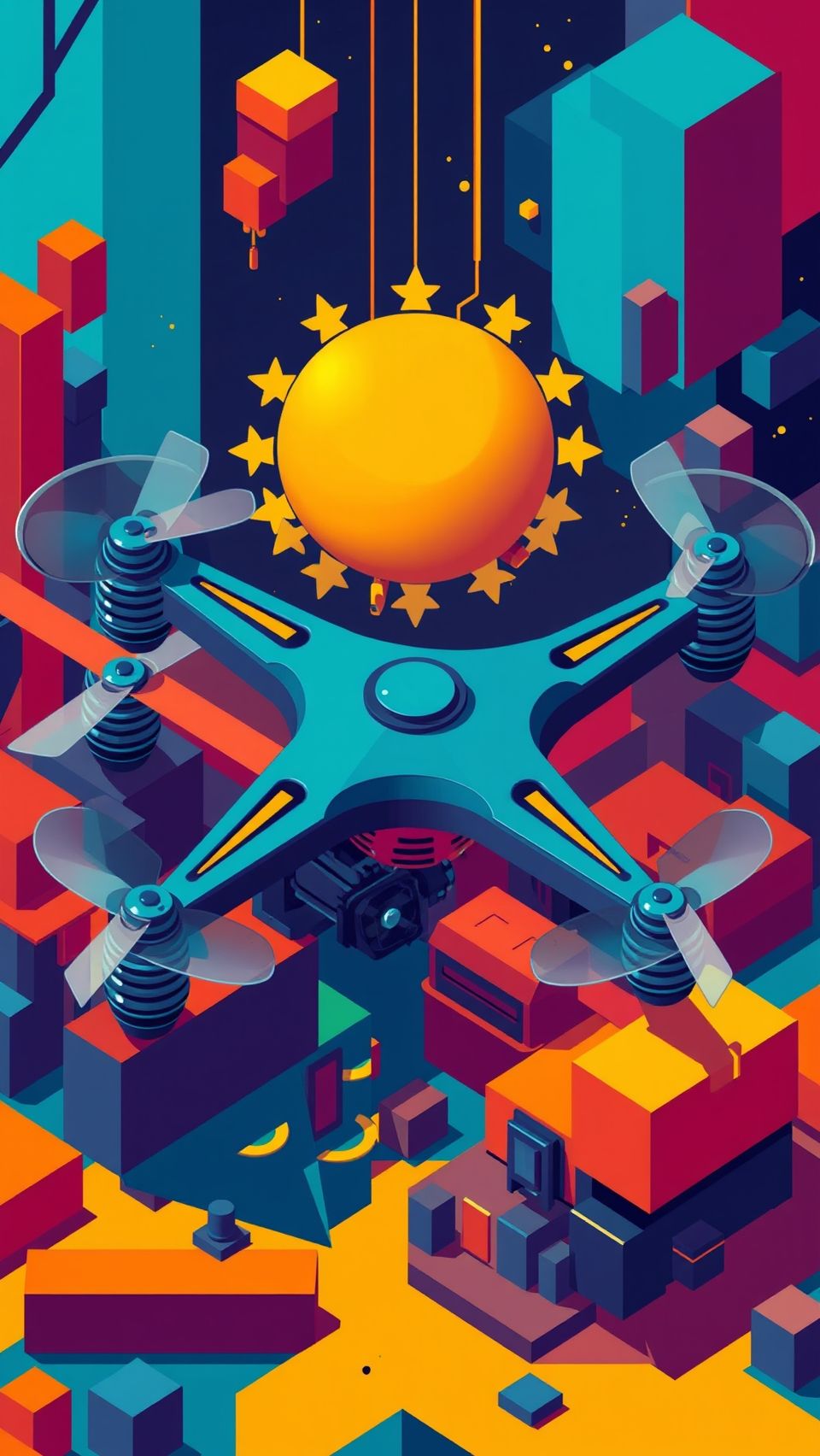17. June 2025
Russia Unveils Drone Troopers: A New Wave Of High-Tech Warfare

The Rise of the Drone Troopers: A New Era for Russian Military Operations
In a significant development that underscores the growing importance of unmanned aerial vehicles (UAVs) in modern warfare, Russia has officially recognized drone troopers as a distinct branch of its armed forces. This strategic move, announced by Russian leader Vladimir Putin during a recent meeting on the country’s new ten-year armament program, marks a major milestone in the militarization of drone technology.
Putin emphasized the need for rapid deployment and development of drone troops, stating, “In this connection, I would like to point out that we are now creating unmanned systems troops as a separate branch of the armed forces, and it is necessary to ensure their deployment and development as quickly and efficiently as possible.” This emphasis on speed and efficiency highlights the importance of drone technology in modern military operations.
Training programs for drone troopers are already underway, with the Northern Fleet establishing a dedicated center for drone operator training. The center has become a hub for training soldiers with combat experience in Ukraine, who are tasked with teaching conscripts and other troops the skills needed to operate UAVs. The training program is divided into three phases: theoretical instruction, simulator practice, and hands-on field training.
The Northern Fleet’s training center showcases advanced methods tailored to the region’s harsh conditions. In April 2025, Northern Fleet Head Commander Konstantin Kabantsev visited Franz Josef Land, where local forces demonstrated drone and anti-drone weapon operations. The center employs a phased training model that ensures operators are well-prepared for deployment.
Technical advancements in drone technology have played a significant role in the development of this capability. The Russian military has invested heavily in research and development to create more advanced UAVs, including reconnaissance drones and combat models. These advancements have enabled the development of more sophisticated training programs, which focus on practical skills such as handling equipment and operating in challenging environments.
The integration of drone technology into Russian military operations has also led to significant economic implications. The expansion of drone capabilities is likely to drive demand for UAV components, potentially costing millions of USD in development and production. The integration of naval shipyards like Sevmash and Zvezdochka suggests a long-term investment, likely exceeding hundreds of millions of USD over the decade-long program.
The militarization of drone technology has significant implications for drone pilots and the industry at large. As advancements in battery efficiency and propulsion spill over into civilian markets, it is likely that recreational pilots and EV enthusiasts will benefit from these developments. However, the focus on combat applications may prompt stricter global regulations, affecting drone operators worldwide.
In recent years, Russia has made significant investments in drone technology, including the development of reconnaissance drones and combat models. These advancements have enabled the development of more sophisticated training programs, which focus on practical skills such as handling equipment and operating in challenging environments. The integration of drone technology into Russian military operations has also led to significant economic implications, with potential benefits for the manufacturing and training sectors.
As the Russian military continues to develop its drone capabilities, it is likely that we will see significant advancements in this field, with potential implications for global defense strategies and the Drone Industry at large. The future of drone technology looks bright, with numerous countries around the world investing heavily in research and development to create more advanced UAVs.
The integration of drone technology into modern warfare has significant economic implications, with potential benefits for the manufacturing and training sectors. However, it also raises questions about export controls and international military standards. As the global community continues to grapple with the challenges posed by UAVs, it is essential to consider the long-term implications of this technology on global security and civilian society.
The rise of the drone troopers marks a new era for Russian military operations, one that will likely be shaped by the rapid advancement of UAV technology. This development underscores the growing importance of unmanned aerial vehicles (UAVs) in modern warfare and highlights the need for strategic investment in this capability.